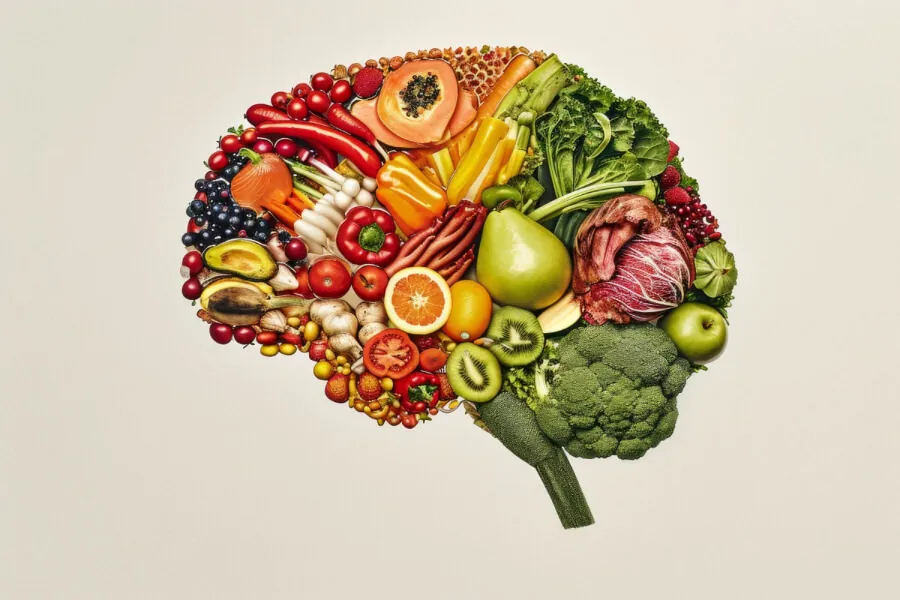Forgetting where you put your keys, struggling to recall a name, or experiencing slower thinking – these are all common occurrences, especially as we age. But what if there was a natural way to support your memory and overall brain health?
Understanding Vitamin K2’s Role in Brain Health
In the pursuit of optimal health, we often focus on the usual suspects: vitamins C, D, and various minerals like calcium and magnesium. However, there’s one often-overlooked nutrient that might just hold the key to unlocking better brain health: Vitamin K2.
Yes, you read that right! While it’s often associated with bone health, emerging research suggests that K2 could play a crucial role in cognitive function and memory retention. Intrigued?
Let’s delve deeper into the fascinating world of the Vitamin for brain health
Unveiling the Importance of Vitamin K2
Vitamin K is a group of fat-soluble vitamins known for their role in blood clotting. However, within this group exists a special player: vitamin K2. Unlike its K1 counterpart found in leafy greens, vitamin K2 is primarily produced by gut bacteria and obtained through specific dietary sources.
Here’s the exciting part: vitamin K2 activates proteins in your body responsible for shuttling calcium to where it’s needed – your bones and teeth. But recent research suggests its influence extends beyond these hard tissues, potentially impacting brain health as well.
Can Vitamin K2 Improve Cognitive Function?
Our brains rely heavily on a healthy flow of blood and oxygen, and research indicates K2 might play a role here. Studies suggest that the vitamin helps prevent calcium buildup in blood vessels, including those supplying the brain. This could potentially improve blood flow and oxygen delivery, which are crucial for cognitive function.
Research indicates that K2 plays a role in the creation and metabolism of sphingolipids, crucial for brain cell membranes. “ProHealth”
Furthermore, K2 activates a protein called “matrix Gla-protein” (MGP), which helps regulate calcium deposits in brain tissue. Excessive calcium buildup in the brain is linked to cognitive decline and dementia. By promoting healthy calcium regulation, K2 might offer neuroprotective benefits.
The Link Between Vitamin K2 and Dementia
Dementia is a group of conditions characterized by a decline in cognitive function that affects daily life. While the exact causes are complex, researchers are exploring the role of abnormal protein deposits in the brain, including amyloid plaques and tau tangles.
Here’s where K2 enters the picture again. Studies suggest that low K2 levels might be associated with an increased risk of dementia, particularly Alzheimer’s disease. While more research is needed, the link between K2’s role in calcium regulation and the prevention of abnormal protein deposits in the brain is a promising area of exploration.
Ensuring Adequate Vitamin K2 Intake
While research on vitamin K2 and brain health is ongoing, incorporating this nutrient into your diet can’t hurt. But how do you make sure you’re getting enough? Here’s a breakdown:
- Food Sources: The richest natural sources of vitamin K2 include natto (a fermented soybean dish), grass-fed butter, cheese, egg yolks, and fermented vegetables like sauerkraut and kimchi.
- Important Note: While natto is the absolute champion in terms of vitamin K2 content, its strong flavor and texture might not be for everyone.
- Supplementation: If you struggle to include these foods regularly, consider a vitamin K2 supplement like MK-7. Always tell your doctor before starting any new supplements.
Remember: A balanced diet and healthy lifestyle habits like regular exercise, quality sleep, and stress management are still the cornerstones of optimal brain health. Vitamin K2 might be a valuable addition to this foundation, but it’s not a magic bullet.
Conclusion
Vitamin K2 is an exciting nutrient with emerging research highlighting its potential benefits for brain health.
While more studies are needed to fully understand its impact, incorporating vitamin K2 into your diet through food or supplements could be a worthwhile strategy to support cognitive function and overall brain health as you age.
FAQs
What is Vitamin K2, and how does it relate to brain health?
Vitamin K2 is a fat-soluble vitamin that plays a crucial role in directing calcium to where it’s needed most in the body, such as bones and teeth.
However, emerging research suggests that Vitamin K2 may also have significant implications for brain health. Studies have indicated that the vitamin can help protect brain cells from oxidative stress and inflammation, potentially improving cognitive function and memory retention.
How can Vitamin K2 benefit cognitive function?
Vitamin may benefit cognitive function through various mechanisms. It helps regulate calcium in the brain, which is essential for neurotransmitter release and neuronal signaling.
Additionally, it possesses antioxidant properties, protecting brain cells from damage caused by free radicals. These combined effects may contribute to improved cognitive function and memory performance.
Is there a link between Vitamin K2 and dementia prevention?
Yes, recent studies have suggested a potential link between Vitamin K2 and dementia prevention. Higher dietary intake of Vitamin K2 has been associated with a reduced risk of dementia over time.
Furthermore, low levels of Vitamin K have been implicated in an increased risk of developing Alzheimer’s disease. While more research is needed to fully understand the relationship, these findings highlight the importance of the Vitamin for brain health as we age.
What are some sources of Vitamin K2 in the diet?
The Vitamin can be found in various foods, with some of the richest sources including fermented foods like natto, certain types of cheese such as Gouda and Brie, egg yolks from pasture-raised chickens, and meat from grass-fed animals. Incorporating these foods into your diet can help ensure an adequate intake of K2 to support brain health and overall well-being.
Should I consider taking Vitamin K2 supplements for brain health?
While getting K2 from dietary sources is ideal, some individuals may benefit from supplements, especially if they have difficulty obtaining enough K2 through food alone. However, it’s essential to consult with a healthcare professional before starting any new supplement regimen.
They can assess your individual needs and provide personalized recommendations based on your health status, lifestyle, and dietary habits. Additionally, they can help ensure that any supplements you take are safe and effective for supporting brain health and cognitive function.





